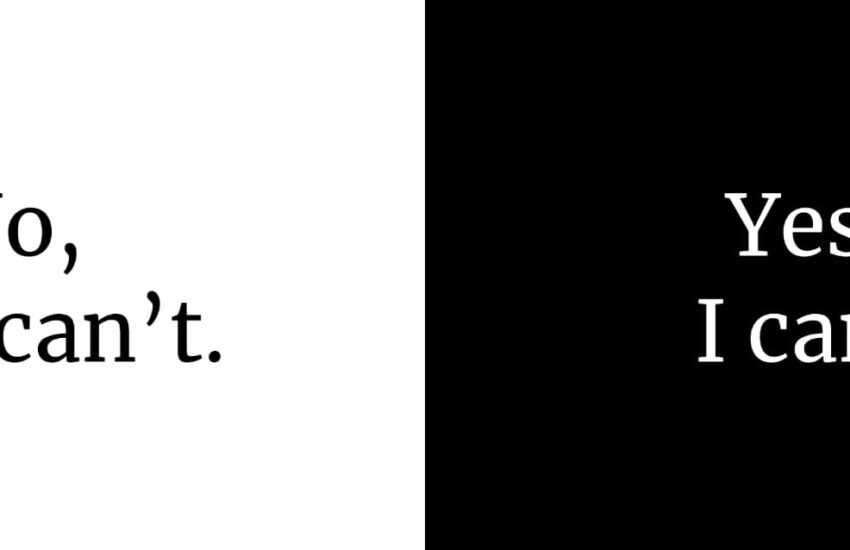If you are ready to transform negative self-talk from a bully to a bystander, these science-backed strategies can help you reclaim mental clarity without fake positivity. I will never forget the afternoon I missed a crucial deadline at work. As I stared at my computer screen, a familiar voice hissed: You are a fraud. Everyone knows you cannot handle this job. Sound familiar? That voice, the inner critic, had been my constant companion for years. If you are searching for ways to overcome negative self-talk and reclaim your mental peace, it is possible, but it starts with understanding that voice.
Why Your Brain Loves to Berate You
Negative self-talk is sneaky. It masquerades as protection, convincing you that calling yourself “lazy” will motivate productivity or that predicting disaster will soften future blows. The truth? Studies show this pattern spikes stress hormones and tanks problem-solving skills. My client Mara once described her inner critic as a “drill sergeant on a megaphone.” She had internalized her father’s exacting standards, believing self-criticism was the price of success. Spoiler: it backfired.
The Four Faces of Negative Self-Talk: Which One Sounds Like You?
We all have go-to scripts. For me, it was catastrophic. If I stumbled during this presentation, I would lose my job, my cat would judge me, and I would end up living in a van. Others fixate on black-and-white thinking One typo equal to total failure or personalizing My friend canceled plans; they must hate me. Spotting your pattern is half the battle.
When “Just Think Positive!” Falls Flat
Early on, I tried slapping smiley-face stickers on my mirror with affirmations like “You are enough!” It felt…ridiculous. Why? Because toxic positivity ignores the nuance of healing. Cognitive-behavioral therapy taught me to interrogate my inner critic like a skeptical journalist: Where is the evidence I will get fired? Have I recovered from mistakes before? Slowly, “I am a failure” became “I am learning.”
The Unlikely Power of Cringing at Yourself
Here is a game-changer: name your critic. Mine is “Karen.” When she starts ranting about my life choices, I literally say aloud: Thanks, Karen, but I have this.Silly? Maybe. Effective? Absolutely. Mindfulness practices like noticing negative thoughts without wrestling them help too. Picture your thoughts as spam emails: you do not have to open them.
Why Self-Compassion Feels Awkward And Why It Works Anyway
Admitting this is uncomfortable: for years, I believed self-kindness was for people who “could not handle the truth.” Then I read Kristin Neff’s research: treating yourself like a friend lowers anxiety and boosts resilience. So I tried it. After burning dinner, instead of Classic loser move, I muttered: Rough night. Let us order pizza. Baby steps.
Your Action Plan No Toxic Positivity Allowed
Start small. Track your negative self-talk for three days, no judgment, just curiosity. Notice triggers. Then, write rebuttals. Thought: I bombed that meeting. Rebuttal: I spoke up twice, and the client nodded. Keep a “win jar” for moments your critic dismisses. Mine holds notes like Sent email without over-editing pool and Said no to extra work.
The Takeaway: Progress Over Perfection
Last week, Karen piped up as I drafted this piece: No one cares about your self-talk journey. This time, I laughed. Growth is not about silencing the critic forever, it is about turning down the volume so you can hear your own voice. And trust me, that voice? It is worth listening to.
Final Thought: Your Critic Does Not Get the Last Word
Negative self-talk might never fully vanish. But today, when Karen mutters You are impostor, I counter: And yet, here I am writing this, paying bills, keeping plants alive. Progress, not perfection. And that? That is enough.
References
Kross, E., Bruehlman-Senecal, E., Park, J., Burson, A., Dougherty, A., Shablack, H., Bremner, R., Moser, J., & Ayduk, O. (2014). Self-talk as a regulatory mechanism: How you do it matters. Journal of Personality and Social Psychology, 106(2), 304–324. https://pubmed.ncbi.nlm.nih.gov/24467424/
Neff, K. D., & Dahm, K. A. (2015). Self-compassion: What it is, what it does, and how it relates to mindfulness. In B. D. Ostafin, M. D. Robinson, & B. P. Meier (Eds.), Handbook of mindfulness and self-regulation (pp. 121–137). Springer. https://self-compassion.org/wp-content/uploads/2015/12/SC.Mindfulness.pdf
Beck, J. S. (2020). Cognitive behavior therapy: Basics and beyond (3rd ed.). Guilford Press. https://www.guilford.com/books/Cognitive-Behavior-Therapy/Judith-Beck/9781462544196
National Institute of Mental Health. (2023). Depression. https://www.nimh.nih.gov/health/topics/depression/index.shtml

